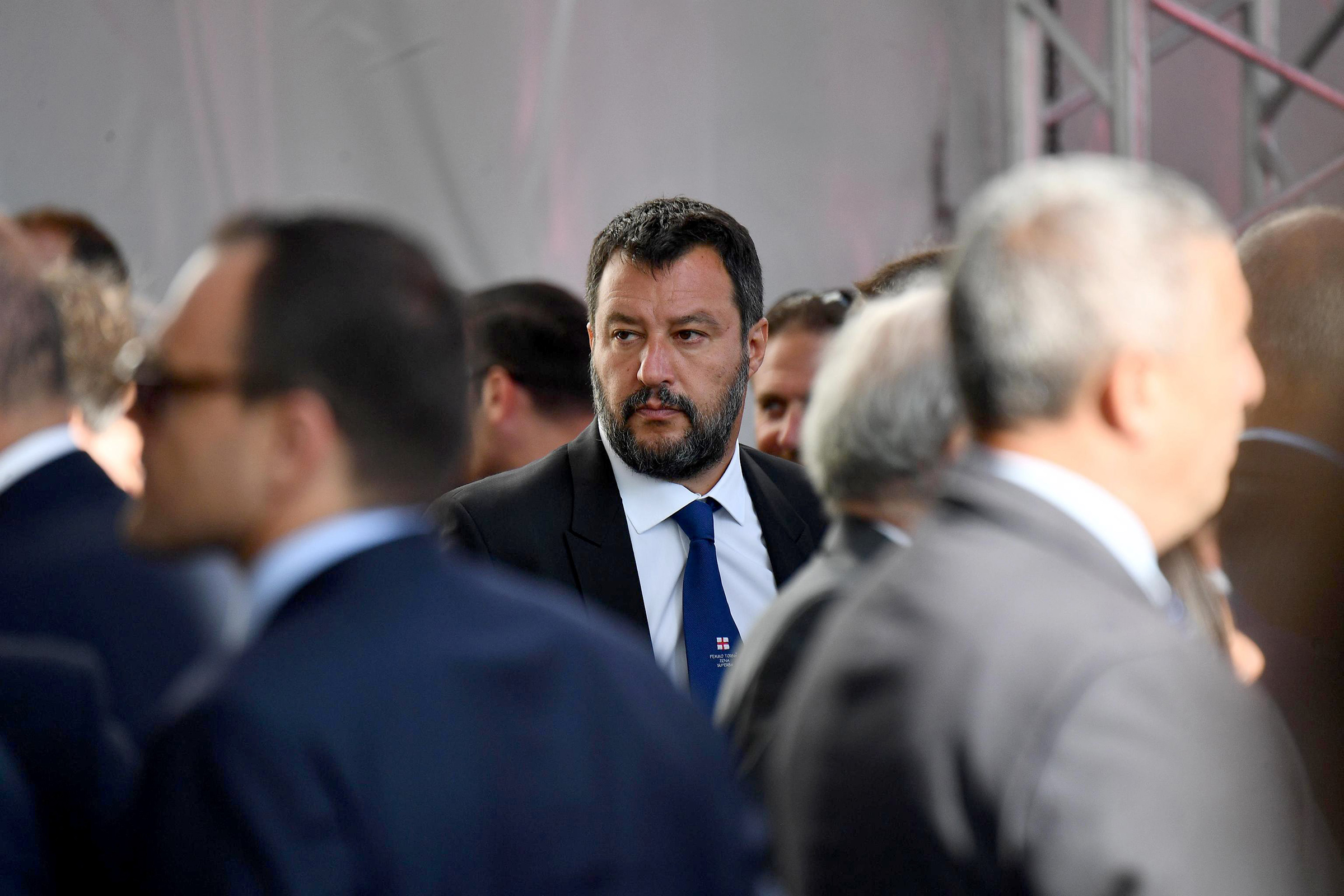
Italy has had 67 governments over the past 74 years; in that respect, the impending collapse of the 5 Star–Lega coalition government is hardly surprising. For 14 months, the far-right Lega party helmed by current Interior Minister Matteo Salvini has managed to cooperate with the anti-establishment 5 Star Movement despite little agreement on actual policy beyond a general contempt for the E.U. Lega’s priorities have centered on stemming migration flows into the country and cutting taxes; for 5 Star, the focus has been on expanding the social safety net and radically reforming Italy’s sclerotic political system. Tensions in the coalition have risen in recent months as Lega has been accused of soliciting help from the Kremlin ahead of European elections in May, a charge that Salvini dismisses as the “fantasies of James Bond.” Things came to a head earlier this month when 5 Star voiced opposition to a long-cherished Lega rail project, which Salvini used as a pretext to set the government collapse in motion.
Despite Lega’s being the junior coalition partner in the government (5 Star controls 227 seats to Lega’s 124 in Italy’s 630-seat Chamber of Deputies), Salvini has been driving the policy agenda. Much of that has to do with his talent for communication and Lega’s rising poll numbers, which at last count hovered at 38%–more than double the vote share it received in the 2018 general election. Should those poll numbers hold steady or even improve on the back of a political campaign, Salvini is poised to become the country’s next Prime Minister. And if things really break Salvini’s way, he will be able to form a right-wing government with another far-right (but much smaller) party called the Brothers of Italy, while excluding center-right Forza Italia and its leader, former Prime Minister Silvio Berlusconi. There remains a chance another constellation of parties will band together to steer the government through difficult budget negotiations with the E.U. at the end of the year. That wasn’t what Salvini was expecting when he called for a no-confidence vote, but Italian politics can be unpredictable.
Most people assume an empowered Salvini will be inclined to push Brussels to the brink if and when he secures Italy’s premiership. But we are more likely to see policy continuity from the next Lega-led government, as Salvini has been the one calling the shots for some time now. Salvini is also less likely to purposely pick a major fight with Brussels once firmly in power–both because he no longer has the political shield of being a junior partner in a coalition led by someone else, and because he’s poised to lead the longest-serving Italian government in several generations should he perform as well as expected. As it is, Italy is struggling with its economy and finances; a genuine confrontation with Brussels would put the screws to an Italian economy that Salvini vowed to resuscitate as a pro-business candidate.
Factor in the increasing likelihood Europe will tip into recession (the specter of a no-deal Brexit, ongoing turmoil in Turkey and rising U.S.-China tensions all weigh heavily on slowing European growth), and Salvini’s life looks set to get more difficult even if he does win big in elections. Europe shouldn’t be worried Salvini will purposely force a major confrontation with Brussels so much as that he’ll be unable to manage an economic crisis, whether triggered by him unintentionally or by circumstances beyond his control.
More Must-Reads from TIME
- Cybersecurity Experts Are Sounding the Alarm on DOGE
- Meet the 2025 Women of the Year
- The Harsh Truth About Disability Inclusion
- Why Do More Young Adults Have Cancer?
- Colman Domingo Leads With Radical Love
- How to Get Better at Doing Things Alone
- Michelle Zauner Stares Down the Darkness
Contact us at letters@time.com